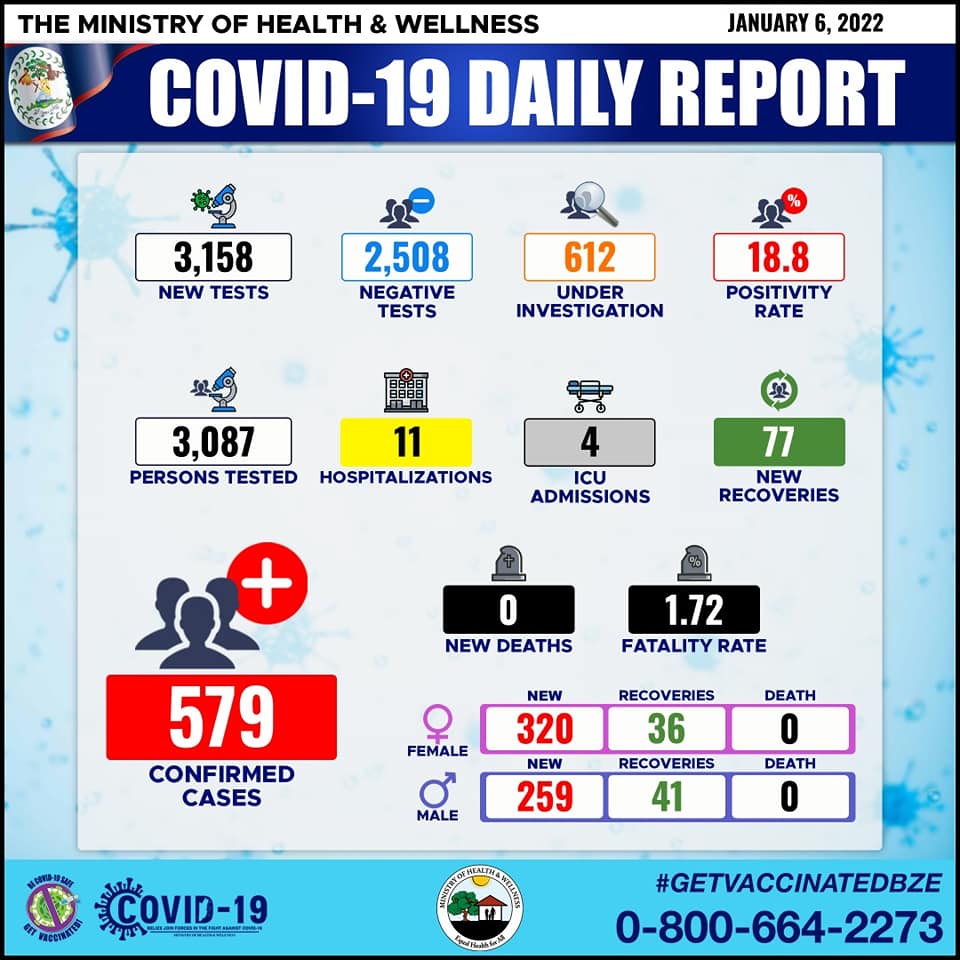As of Thursday, January 6th, Belize has over 3,700 active COVID-19 cases, with Belize City, Orange Walk Town, and San Pedro Town reporting the highest number of infections. Currently, San Pedro alone has recorded over 100 positive cases, a concern for tourism stakeholders. The surge in positive cases is attributed to the Omicron variant, a highly contagious virus strain. Although the rate of infections is on the rise, the number of hospitalizations is significantly low compared to previous waves of the disease.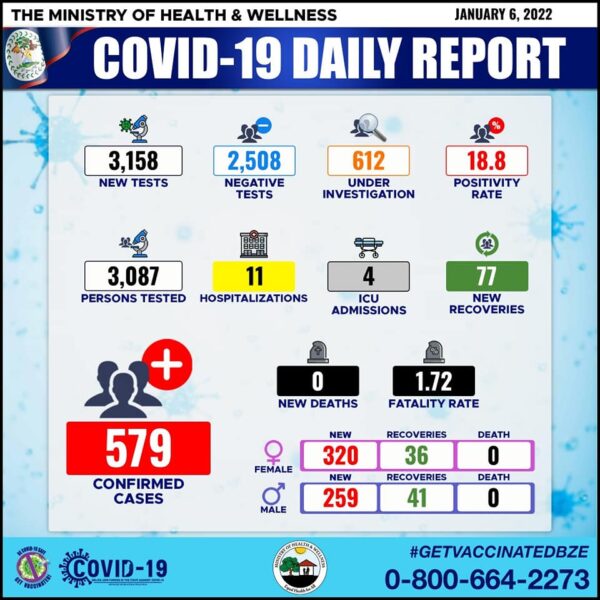
The current number of hospitalizations reported on Thursday’s COVID-19 report from the Ministry of Health and Wellness recorded only 11 hospitalizations and four admissions to the Intense Care Unit at the Karl Heusner Memorial Hospital in Belize City. The number of persons dying from complications of the disease has also decreased, and on Thursday, none were reported. According to doctors, the Omicron variant appears to be less lethal than the Delta strain.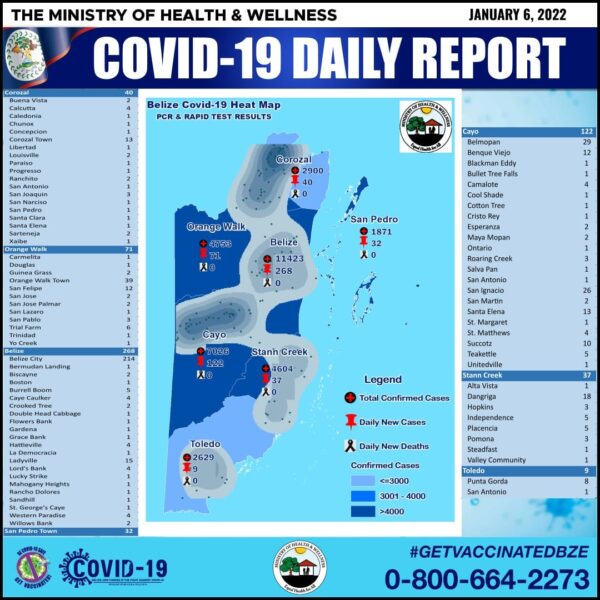
The World Health Organization said on January 4th that they have new information about Omicron. The variant causes milder COVID-19 symptoms among those infected. This is the reason why hospitalizations are low. One of the most common COVID-19 symptoms is the loss of taste and smell, which is unusual among Omicron patients. One specific symptom linked to Omicron and reported by patients includes night sweats, muscle aches, fatigue, and scratchy throats.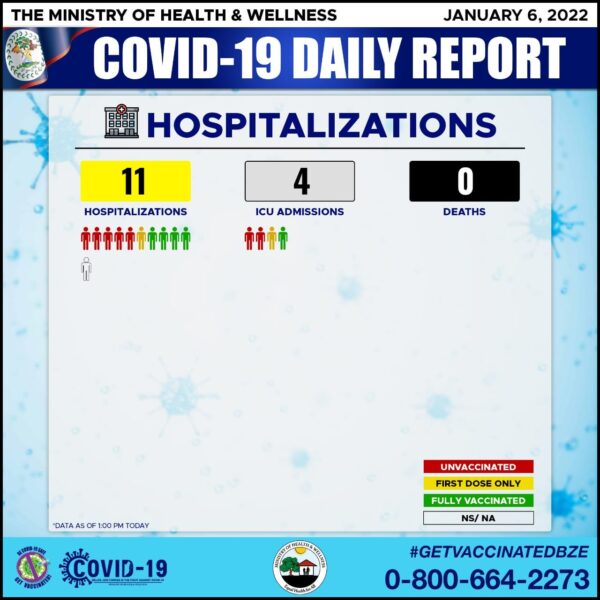
Increase in cases could affect tourism
The current wave of infections is expected to produce higher numbers for the upcoming days as the new wave intensifies. San Pedro has been reporting double digits for the past few days, with Thursday’s report showing 32 positive infections on the island. At this rate, the number of active cases in San Pedro is likely to be high, including islanders and tourists. Health officials at the Dr. Otto Rodriguez San Pedro Polyclinic II say because it spreads so quickly, it can increase the chances of people getting sicker with the possibility that the virus can mutate again. The other concern is the number of tourists forced to stay additional days in the country because they tested positive, affecting the tourism season.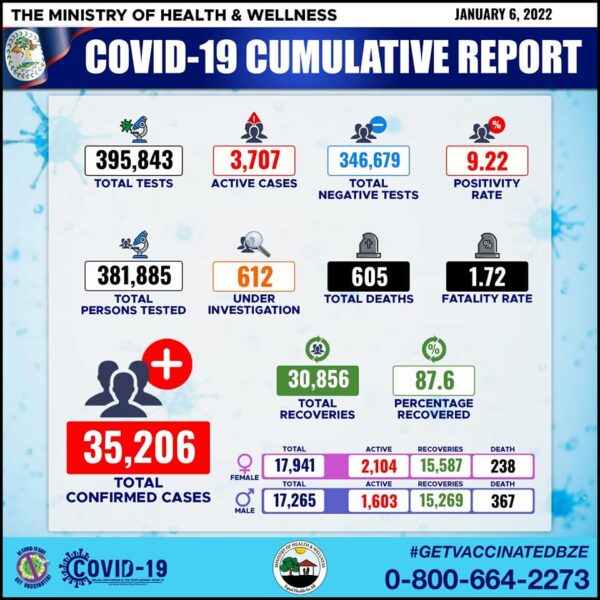
The virus can spread from an infected person’s mouth or nose in small liquid particles when they cough, sneeze, speak, sing and breathe. If someone inhales in these particles or touches a contaminated surface and then touches their eyes, mouth, or nose, they will become infected. Health experts added that the virus spreads more easily in crowded and indoor settings.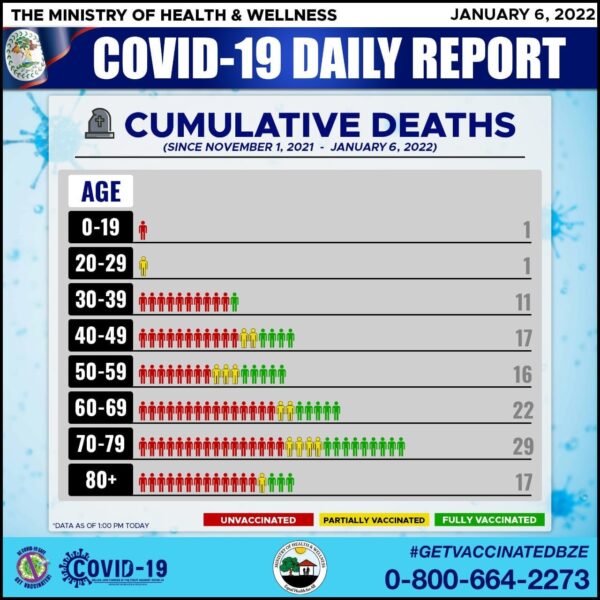
The health authorities urge the public not to bring down their guard, continue adhering to the health protocols (proper hand hygiene, mask-wearing in public places, and social distancing), and get vaccinated.

